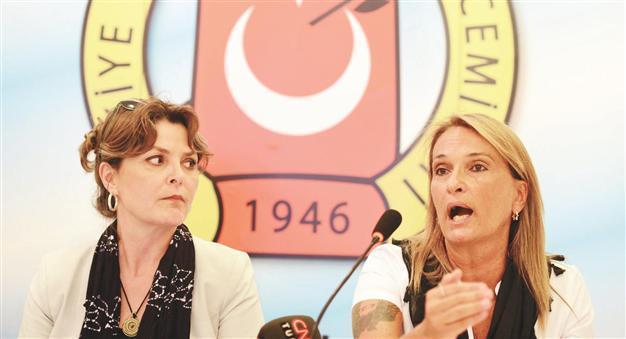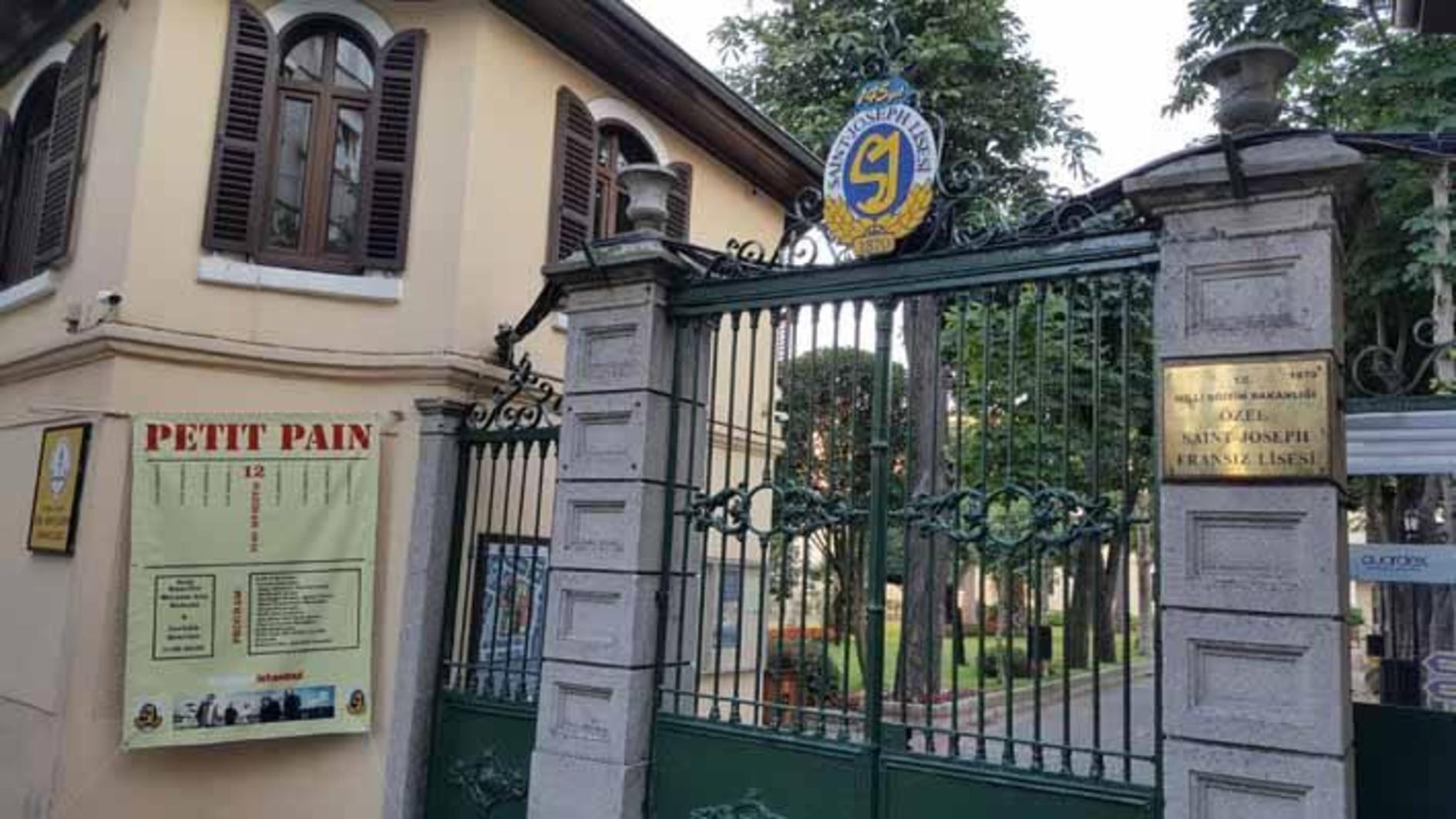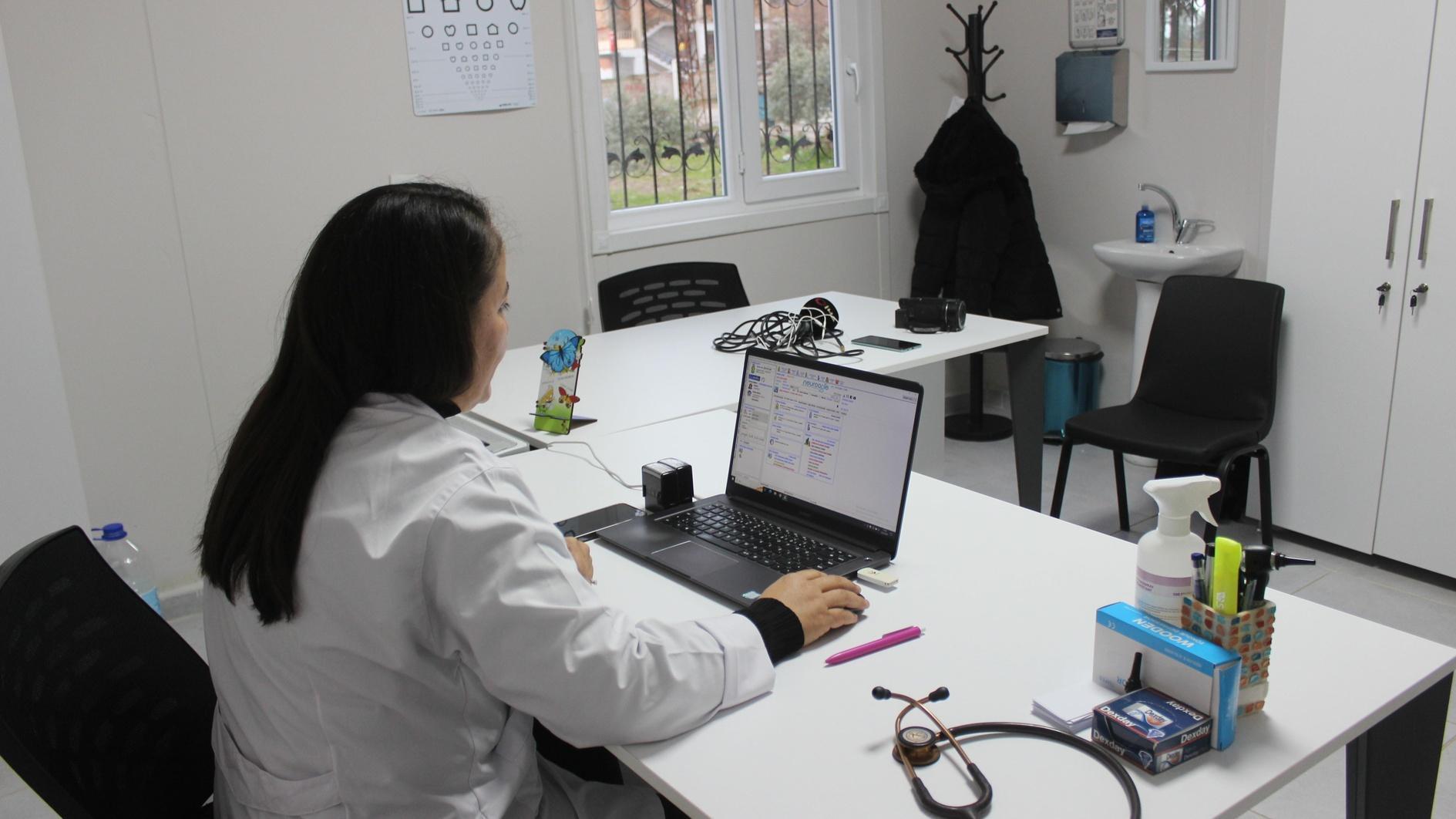Turkish journalists discuss hate speech in media
ISTANBUL- Hürriyet Daily News

Lecturer İnceoğlu (R) speaks at the Turkish Journalists’ Association panel. DAILY NEWS photo, Emrah GÜREL
Discrimination and hate speech are commoved in the Turkish media and the media’s support is needed to prevent it, Turkish Journalists’ Association (TGC) head Turgay Olcayto has said.Speaking at a panel discussion on the subject, which was organized jointly by the TGC and the Konrad Adenauer Stiftung, Olcayto stressed the importance of language that did not marginalize anyone in society.
Prof. Yasemin İnceoğlu, lecturer at Istanbul’s Galatasaray University, said the current media situation was desperate, explaining that more than 100,000 news pieces had been examined on the 2007 assassinated Armenian-origin journalist Hrank Dink.
“There is a dominant ideology and ‘we’ description. The ones who rest outside this description are perceived as the other,” said İnceoğlu, adding that there was also homophobia, anti-Semitism, and anti-Alevism in the language of the press, as well as general opposition to non-Muslims.
Dink example
Hrant Dink, who was an Armenian with Turkish nationality, was assassinated on Jan. 19, 2007 in front of the Istanbul office of the Turkish-Armenian newspaper Agos, of which he was the editor-in-chief.
The head of the communication faculty at Bahçeşehir University, Prof. Orhan Tekelioğlu, also referred to the well-known Turkish TV series The Magnificent Century, which he said repeatedly emphasized characters’ “otherness.”
“It is being stressed every time that Pargalı İbrahim Pasha is a Greek of Turkish nationality; Hürrem’s accent is intentionally not being corrected. Their otherness is being consciously punctuated,” said Tekelioğlu.
The Magnificent Century is set during the reign of the Ottoman Sultan Süleyman the Magnificent and is focused mostly on what happened in the harem. While Pargalı İbrahim Pasha, who was a “devşirme” picked up from a non-Muslim family and raised as a Muslim to be used in state affairs, was the grand vizier of Süleyman, Hürrem, who was of Ukrainian origin but who converted to Islam once she was chosen for the imperial harem, was the legal wife of Süleyman and the mother of five of his children.
Lawyer Nazan Moroğlu told the Hürriyet Daily News after the panel discussion that discrimination against women in Turkey had increased in the recent years. Moroğlu said the women who were detained during the Gezi Park protests had been harassed and were unable to make their voice heard.
“We could bring up these topics to the TV’s agenda just a few years ago but now all stations are blocked, we cannot make our voices heard,” said Moroğlu.
















